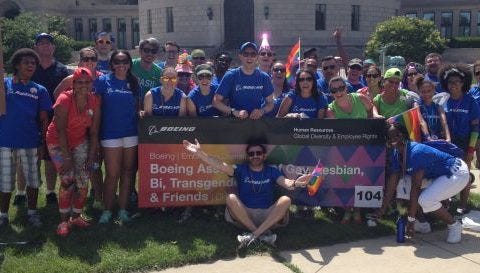Weekly Roundup: You Get The Minimum for the MAX Edition

The Boeing 737 MAX 10 costs $134,900,000 --- that's about half of the price tag for an F-22 Raptor, but it's five times as much as you'd pay for an Embraer 175 super-sized regional jet. Given that American Airlines was paying $48.4 million each for 737-800 jets a decade ago, you'd expect that the MAX 10 offers a lot of additional utility and capacity to go along with that significantly increased price. What you would not expect: that much of the software responsible for keeping the big little Boeing in the air was developed in Chennai, India at a cost of $9/hour.
But it was.

Boeing is a "Top 50 Diverse Company" according to for-profit diversity consultants DiversityInc. It paid its CEO more than $30 million while paying nearly that much in direct lobbying. The company knows all the right people, babbles all the correct platitudes, and greases all the right palms. But this gleaming Current Year facade hid a deadly rot beneath.
In 2010, Boeing opened a "Center Of Excellence" in Chennai. Those readers who are familiar with the Orwellian inversion of modern corporate communications will have no difficulty figuring out that the "center of excellence" was, in fact, a way to drastically cut costs while putting American programmers out of work. In the case of the 787 Dreamliner, an Indian consulting company offered to perform all the coding work for free in exchange for payments once the plane was successful. When Boeing wasn't getting the work for free, it was paying between $5 and $9 an hour to "skilled engineers" from India.
It is reasonable to ask: Why pinch pennies on a nine-figure aircraft? In some cases, it was about more than that. Boeing invested billions into Indian software companies and was rewarded in turn with orders for Indian airlines which had previously favored Airbus. You see, Indian companies lack the enlightened attitude of the "global citizens" who run American firms. They like to incentivize doing business with their countrymen. They like to hire their countrymen, even when doing so violates American law. In short, they're patriots --- in much the same way that American C-suite leaders are not.
The orders from India didn't really amount to that much, however --- eleven billion dollars. The costs associated with grounding the 737 MAX aircraft will easily eclipse that, even if you don't bother to include the opportunity costs of having your most popular airplane acquire a reputation for falling out of the sky. So it wasn't really a quid pro quo situation. What was it?
Why, it was profit. Every penny was squeezed out of the $134 million 737 MAX in the name of profit. This is how we do business in the United States now. Shareholder value is paramount. An entire generation of investors is now retired and expecting their investments to carry them all the way to the grave in style. They are remarkably ruthless about maximizing short-term gain, for obvious reasons. Boeing gave them that, quadrupling stock price in the three years from 2016 to 2019. Well, the lizard people will now have to give some of those paper gains back.
Bloomberg isn't the only outlet reporting on the disintegrating situation at Boeing. The aggressiveness with which the company pursued cultural and political goals while simply ignoring or outsourcing all the hard parts of airplane design and manufacture is not entirely unreminiscent of an Ayn Rand polemic-novel. How long will it be until someone patiently explains to the American taxpayer that Boeing is "too big to fail", that it must be propped up by American tax money which will then be sent to Chennai and elsewhere?
This MAX fiasco feels like a personal insult to your humble author, who transferred his childhood loyalty from the L-1011 "Whisperjet" to Boeing aircraft once Lockheed abandoned the civilian sector. Whenever I fly Delta, I always check the "equipment" of the flight in question. If there's a choice between flights, I'll take the one with the American aircraft. A few years ago, I spent a fair amount of money to send my son across the country in the Delta One cabin of a Boeing triple-seven just so he could have the experience of flying on something besides a regional jet or a plain-Jane 737-200 --- what he called a "regular travel plane" when he was six years old, because all of his flights up to that point had been on Southwest.
I used to say, mostly in jest, "If it's not Boeing, I'm not going." Given the number of people whose travel plans were sledgehammered by the 737 MAX debacle, perhaps Airbus should update their slogan from the tepid "Setting the standards" or "We make it fly". May I suggest: "Airbus: We're not Boeing, which means you'll still be going on that trip."
* * *
This week, Brother Bark asks us to treat a reader as a friend.
For Hagerty, I suggested an X-Cadillac and ranked the best C7 Corvettes for sale today.

